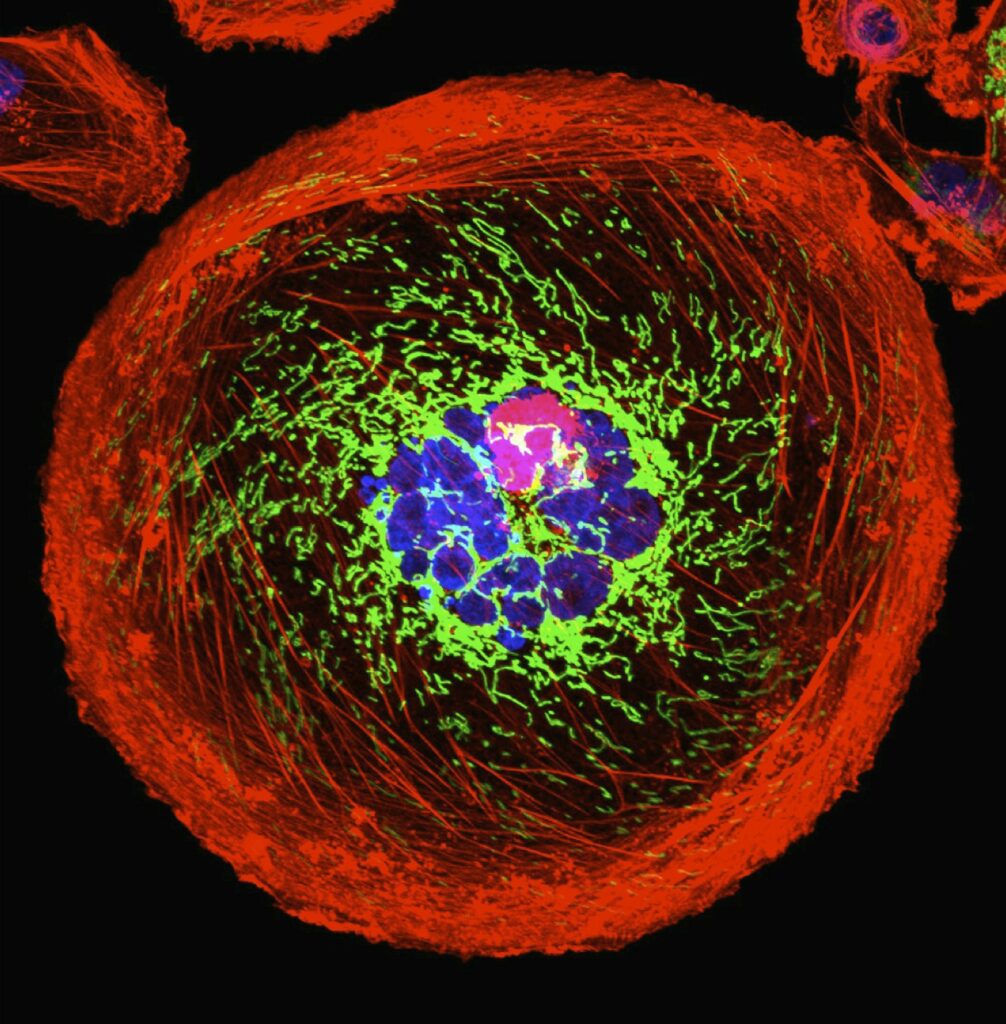
UNIVERSITY PRESS RELEASE — Engineers from Intel and scientists from QuTech have delivered the first qubit made in the very same industrial manufacturing facilities that mass-produce conventional computer chips. This advancement has been a long-standing goal due to its promise of scalability. The breakthrough is a crucial step towards scaling to the thousands of qubits that are needed for practical quantum computation. The investigators published their results in Nature Electronics (DOI).
The production of a scalable quantum computer knows several major hurdles and finding a suitable type of qubit is one of them. One promising qubit candidate is based on the spin of single electrons that are captured in a silicon nanoscale device. A major advantage of this device is its resemblance to conventional transistors. It was therefore expected that the extensive knowledge and skill of the semiconductor industry could be leveraged to produce qubit devices with unprecedented yield, high uniformity, and few defects.
From flexible cleanrooms to strict factories
Currently, semiconductor qubit chips are typically fabricated in cleanrooms using tools that are optimized for flexible design changes and fast turnaround, but compromise on reliability. Industrial semiconductor manufacturing, on the other hand, is extremely reliable but is bound to strict design rules. Important open questions were whether the qubit designs were in fact manufacturable within the design rules and whether the qubits would survive the processing conditions to achieve extremely high yield.
High-volume experiments
“Industrial manufacturing techniques are different from the techniques that are typically used to fabricate such quantum dot samples,” says Anne-Marije, first author and PhD researcher at QuTech—a collaboration between the TU Delft and TNO. “It was as if we were first writing with calligraphy and now, we changed to a stencil machine. The former gives more flexibility, the latter gives a significant improvement in yield and uniformity. Moreover, instead of making 20 devices at a time, a fabrication round now gives us tens of thousands of devices, allowing us to collect statistics on the device properties.” Furthermore, important qubit properties, such as lifetime, are amongst the highest that have been measured in these types of qubits.
The advantages of semiconductor qubits
“So many articles state: semiconductor spin qubits in silicon are compatible with CMOS semiconductor manufacturing. But only now, we have proven that to be actually true,” adds lead scientist at QuTech Lieven Vandersypen. “Moreover,” he says, “the device yield achieved by the Intel team was an unprecedented 98%, compared to 50% on a good day in our university cleanroom.”

Qubits in semiconductor quantum dots
The type of quantum information that makes this qubit is the electron spin. The electron is trapped inside a “box”, given by a potential well in an energy landscape, called a quantum dot. The energy landscape is produced by a combination of material properties (similar layouts to a conventional transistor: silicon–silicon oxide interface) and electric fields. In this way it is possible to isolate and address a single electron in the quantum dot and have full control over its spin.
Next steps
The industrial manufacturing of a single qubit device is now a fact. Parallel efforts are geared towards controlling multiple spin qubits and improving the quality of the qubit control. Combined, these advances will build a solid foundation to realize full-scale quantum computing integrating millions of qubits.
Publication details
Zwerver et al., Nature Electronics (2022) Qubits made by advanced semiconductor manufacturing (DOI)
Source: QuTech
For more market insights, check out our latest quantum computing news here.




















